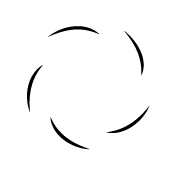Why Humans Sleep
Dr. Samson explains the recent discovery that the way humans sleep is very unique among primates. We sleep shorter but also have a higher proportion of REM sleep. He then explains the evolutionary function of dreams, known as ‘threat simulation theory,’ and connects this to early human social structures. Since we had a community to protect us, we were able to sleep deeply without risk of being eaten by predators.
Biohacking Your Sleep
Dr. Samson explains an experiment his students are doing to assess what factors influence the quality of their sleep. He discusses the importance of blocking out ‘blue wave’ light from our LCD screens, so the students only use candlelight after sunset. This allows our brains to cue the circadian rhythm by releasing melatonin. Once our circadian rhythms are on track, we can begin dealing with other factors.
How Does Light Affect Sleep?
Dr. Samson explains the role of the evolutionary perspective in learning to sleep well. By understanding the ancient importance of the circadian rhythm, we can get back to basics and begin noticing whether our lifestyles are working against it. It’s important to get outside often so that our bodies can respond to natural cues.
Selected resources for learning more
Listen to the Huberman Lab Podcast’s Episode #2, ” Master Your Sleep & Be More Alert When Awake“: “Today’s episode provides a host of information on what makes us sleepy, sleep soundly, and feel awake and alert. It covers a broad range of tools for anyone wishing to improve their sleep and wakeful state. The science and logic for each tool is described.”
Listen to the Huberman Lab Podcast Episode #31,
“Dr. Matthew Walker: The Science & Practice of Perfecting Your Sleep“: “In this episode, my guest is Dr. Matt Walker, Professor of Neuroscience and Psychology and the Founder & Director of the Center for Human Sleep Science
at the University of California, Berkeley. He is also the author of the international best-selling book Why We Sleep and the host of “The Matt Walker Podcast.” We discuss the biology of sleep, including its various stages and what
specifically happens to those stages when we don’t get enough sleep. We also discuss the effects of sunlight, caffeine, alcohol, naps, hormones, exercise, marijuana, sexual activity, and various supplements on sleep. The episode consists
of both basic science information and many science-supported actionable tools.”
